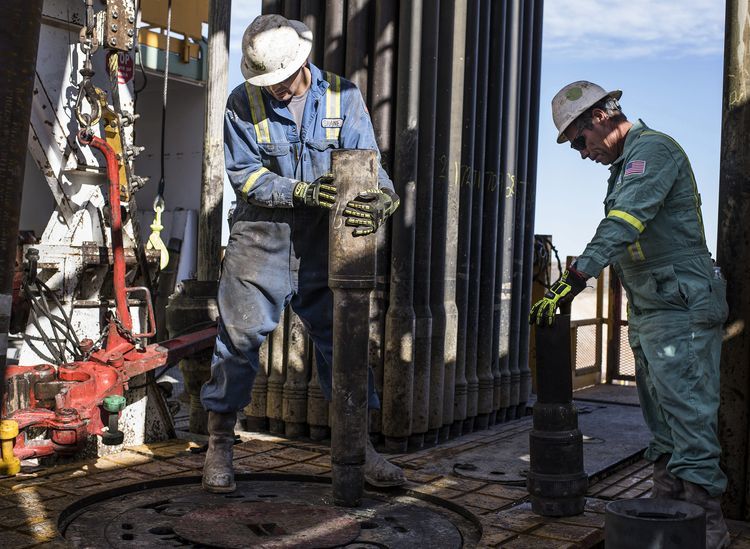
Oil investors are back to being sceptical over whether OPEC-led production cuts are draining a global glut fast enough, keeping prices below $49 a barrel and driving crude toward a second weekly loss.
Futures fell as much as 1 percent in New York. Neither a pledge by the two biggest producers of the Organization of Petroleum Exporting Countries to strengthen their commitment to curbs, or declining U.S. crude stockpiles is managing to lift prices. That’s as America pumps more while the inventory drop is seen as seasonal. OPEC’s own output is increasing on more supplies from Libya, which is exempt from the group’s deal to reduce production.
While U.S. crude inventories dropped to the lowest level since October, gasoline stockpiles last week expanded for the first time since early June, indicating that consumption boosted by the summer driving season may be waning. OPEC on Thursday raised demand estimates for its crude through 2018, but higher Libyan output is undermining its plan to shrink a global glut.
“The power of OPEC rhetoric is diminishing,” said Michael McCarthy, a chief strategist at CMC Markets in Sydney. “The underlying demand picture has slightly improved, but it’s a glacial improvement for the oil market.”
West Texas Intermediate for September delivery lost as much as 49 cents to $48.10 a barrel on the New York Mercantile Exchange, and was at $48.20 at 2 p.m. in Hong Kong. Total volume traded was about 71 percent above the 100-day average. Prices are down 2.8 percent this week.
Brent for October settlement fell as much as 52 cents, or 1 percent, to $51.38 a barrel on the London-based ICE Futures Europe exchange. Prices on Thursday dropped 80 cents, or 1.5 percent, to $51.90. The global benchmark is down 1.8 percent this week and traded at a premium of $3.13 to October WTI.
OPEC increased its forecasts for the amount of crude it needs to supply in 2017 and 2018 by about 200,000 barrels a day for each year, according to a monthly report Thursday from its secretariat in Vienna. Libya boosted output by 154,300 barrels a day, while production from all members reached 32.87 million a day.
Oil-market news:
Saudi Arabia’s Energy Minister Khalid Al-Falih and his Iraqi counterpart Jabbar al-Luaibi met in Jeddah and agreed to ensure coordination of their policies, according to a report from the Saudi Press Agency. Al-Falih said deeper output cuts must be collective and agreed to by all 24 countries participating in an agreement to curb production, newspaper Asharq al-Awsat reports, citing comments at a press conference with Iraq’s oil minister.
Recommended for you
